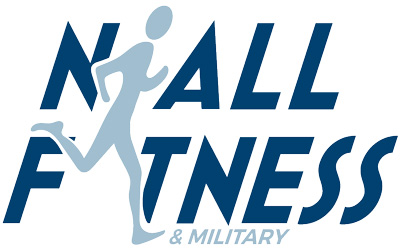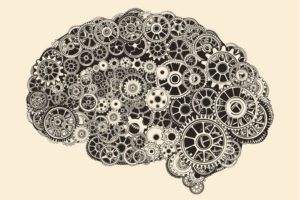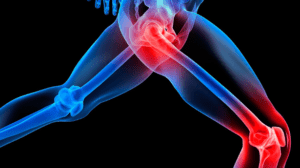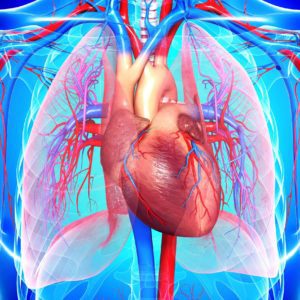Cholesterol

An Introduction:
Many of my clients come to me with concerns regarding their cholesterol. The majority (if not all) have been prescribed Statins which are a medication which lower ones cholesterol level. Encouragingly, there are doctors now releasing new information in order to avoid convential medicines and therefore the side effects that we have come to view as the norm.
Dr David Perlmutter: Grain Brain.
Is there such a thing as dangerously ‘high cholesterol’?
Cholesterol is at most a minor player in coronary heart disease and represents an extremely poor predictor of heart attack risk. Over half of all patients hospitalized with a heart attack have cholesterol levels in the ‘normal’ range. The idea that aggressively lowering cholesterol levels will somehow magically and dramatically reduce heart attack risk has now been fully and categorically refuted. The most important modifiable risks related to heart attack risk include smoking, excessive drinking, lack of aerobic exercise, overweight and a diet high in carbohydrates.
So when I see patients with cholesterol levels of, say, 240 mg/dl or higher, it’s almost always a given that they will have received a prescription for a cholesterol-lowering medication from their GP. This is wrong in thought and action. Cholesterol is one of the most critical chemicals in human physiology, especially as it relates to brain health. The best lab report to refer to in determining one’s health status is hemoglobin A1C, not cholesterol levels. It is rarely, if ever, appropriate to consider high cholesterol alone to be a significant threat to health.
How carbs – not cholesterol – cause high cholesterol.
If you can limit carb intake to a range that is absolutely necessary and make up the difference with delicious fats and protein, you can literally reprogram your genes back to the factory setting you had at birth. This is the setting that affords you the ability to be a mentally sharp, fat-burning machine.
It’s important to understand that when you have a blood cholesterol test, the number that is represented is actually 75-80% derived from what your body manufactures and not necessarily what you’ve eaten. In fact, foods that are high in cholesterol actually decrease the body’s production of cholesterol. We all make up to 2000 grams of cholesterol every day because we desperately need it, and this is serveral times the amount found in our diets. But despite this amazing ability, it’s critical to obtain cholesterol from dietry sources. Our bodies much prefer that we “spoon-feed” our cholesterol from the foods we eat rather than manufacture it internally, which is a complex multistep biological process that taxes the liver. Dierary cholesterol is so important that your body absorbs as much as it can for use.
So what happens if you restrict your cholsterol intake, as so many people do today? The body sends out an alarm that indicates crisis (famine). Your liver senses this signal and begins to produce an enzyme called HMG-CoA redictase, which helps make up for the deficit by using carbohydrates in the diet to produce an excess supply of cholesterol. (This is the same enzyme that statins target). As you can likely predict, it’s a Molotov cocktail in the works: As you eat excessive carbohydrates while lowering your cholesterol intake, you incite a steady and punishing overproduction of cholesterol in the body. The only way to stop this internal pathway run amok is to consume and adequate amount of dietary cholesterol and back off the carbs. Which explains why my “high cholesterol” patients who go on my diet can safely return their levels to normal without drugs, while enjoying cholesterol-rich foods.
Who suffers from high cholesterol?
Thirty years ago the answer was anyone whose cholesterol level was more than 240 and who had other risk factors, such as being overweight and smoking. The definition changed after the Cholesterol Consensus Conference in 1984: Then it became anyone with a cholesterol level over 200, regardless of other risk factors. Today the threshold is down to 180. And if you’ve had a heart attack, you’re in a totally different category: No matter how low your cholesterol level is, you’ll likely be prescribed a cholesterol-lowering medicine and told to maintain a low-fat diet.
Dr Joseph Mercola: Fat for Fuel.
The Truth About Saturated Fats
Part of the enormous confusion about the dangers associated with saturated fats is related to their effect on LDL cholesterol, often referred to as “bad” cholesterol. But it’s important to understand that when you hear the terms LDL and HDL, they’re both referring to lipoproteins, which are simply proteins that carry cholesterol; one is low density and one high density.
HDL cholesterol is actually linked to a lower risk of heart disease, which is why measurements of total cholesterol are useless when it comes to measuring your risk. In fact, if your total cholesterol is “high” because you have a lot of HDL, it’s no indication of increased heart risks; rather, it’s likely protective.
Saturated fats have been shown to actually raise protective HDL cholesterol while also increasing LDL. The latter isn’t necessarily bad either once you understand that there are different types of LDL:
- Small, dense LDL cholesterol
- Large, fluffy LDL cholesterol.
Research has confirmed that large, fluffy LDL particles do not contribute to heart disease. The small, dense LDL particles however, are easily oxidized, which may trigger heart disease. This is because the small, dense LDL penetrates your arterial wall more easily, so it contributes to the build up of plaque in your arteries. Synthetic trans fat also increases small, dense LDL. Saturated fat on the other hand, increases large fluffy- and benign – LDL. People with high levels of small, dense LDL have have triple the heart disease risk of people with high levels of large, fluffy LDL. And here’s another fact that might blow your mind; eating saturated fat may change the small, dense LDL to the healthier large, fluffy LDL! Also important, research has shown that small, dense LDL particles are increased by eating refined sigar and carbohydrates, such as bread, bagels and soda. Together, refined sugar and carbs to far more harm to your body than saturated fats ever could.
Based on what we know now about saturated fats, the irony is that they are actually necessary to promote health and prevent disease. Indeed it’s now known that saturated fats provide a number of important health benefits, including:
- Providing building blocks for cell membranes, hormones and hormone-like substances.
- Mineral absorbtion, such as calcium.
- Acting as carriers for important fat-soluble vitamins A,D,E & K.
- Conversion of carotene into Vitamin A.
- Helping lower cholesterol levels.
- Acting as antiviral agent
- Optimal fuel for your brain when fats are converted to ketones.
- Helping you to feel full and satisfied.
- Modulating genetic regulation and helping prevent cancer.
- Increasing your LDL levels – but these are largely large, fluffy particles that are not associated with heart disease.
- Boosting your HDL levels, which more than compensate for any increase in LDL.
- Serving to fuel mitochondria and produce far fewer free radicals than carbs.
The research ha spelled out loud and clear that saturated fats are beneficial for human health. Most of us need to radically increase the healthy fats in our diet- this includes not only saturated fat but also monounsaturated fats (from avocados and certain nuts) and omega-3 fats-while severely limiting refined vegetable oils and even naturally occuring omega-6 fats [found in grains, certain nuts and seeds]
If this sounds like a lot to remember, just hold onto this: for optimal health, eat real food-this means plenty of saturated fats and little to no refined fats, espeically refined vegetable oils.
Dr Mark Hyman: Eat Fat, Get Thin.
Get tested by your doctor.
- NMR lipid or the Cardio IQ test (cholesterol) profile, which measures HDL, LDL, and triglycerides, and the particle’s number and particle size of each type of cholesterol and triglycerides (which is also important because big, large triglycerides are bad-the opposite of the HDL and LDL particles, which are better when large). This is a newer test, but I would demand it from your doctor, because the typical cholesterol tests done by most labs and doctors are out of date.
- Total cholesterol-ideally under 200 mg/dl but this matters less than the overall profile. If your total cholesterol is 300 mg/dl and your HDL is 100 mg/dl, this is much better than a total cholesterol of 150 mg/dl and an HDL of 30 mg/dl.
- LDL cholesterol-ideally under 100 mg/dl but more important is the total particle number, which should be less than 400 (or even lower).
- HDL cholesterol-ideally over 50 mg/dl for men and over 60 mg/dl for women (although I think both men and women should be over 60 mg/dl)
- Triglycerides-ideally less than 100 mg/dl or even under 70 mg/dl. And you want the small not the large version of the triglycerides.
- Total cholesterol level to HDL ratio less than 3:1.
- Triglyceride to HDL ratio less than 2:1, or ideally 1:1 (if it is over 3:1 you almost certainly have carbohydrate intolerance).
I have found a lot of this information very educational and wanted to share it. I think I will continue this Blog maybe next week as there is a lot more information I think is worth sharing. I think what I would really like is to give people the power to improve their own health and to be able to do it naturally without any side effects. Education is key with regard our health and achieving a better balance to our quality of life through improving our health.
As always, please comment, or contact us for any further information.
-Niall.






